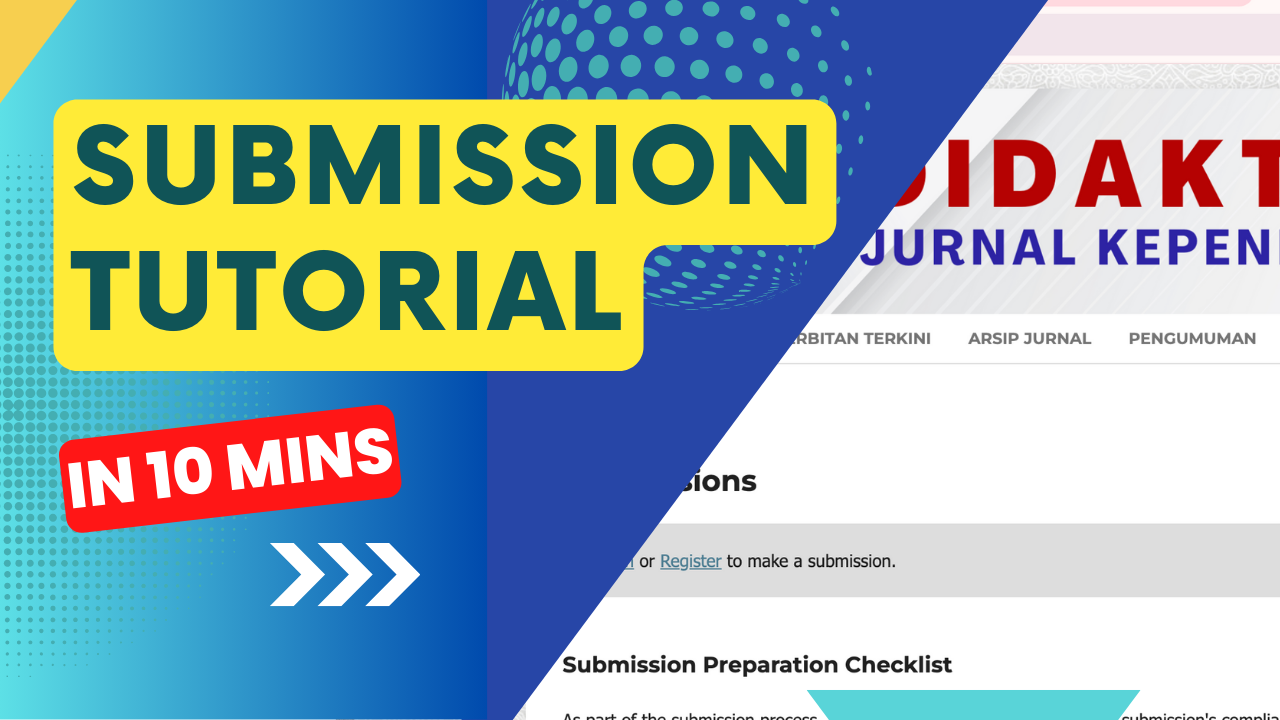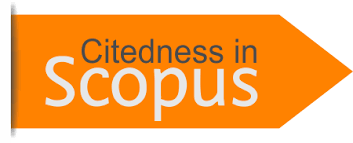Analysis of Constraints on the Implementation of the Independent Curriculum in PAUD Level Mobilizing Schools in Situbondo District
Abstract
This study uses a qualitative research approach to discuss the obstacles to the implementation of the independent curriculum in PAUD-driving schools in Situbondo Regency. Qualitative research methods were used to collect data through in-depth interviews with PAUD teachers in kindergartens in Situbondo, including Nurul Anshor Islamic Kindergarten, DWP 1 Besuki Kindergarten, DWP 1 Asembagus Kindergarten, Kartika IV-71 Kindergarten, Nurul Huda Kindergarten, DWP 1 Jatibanteng Kindergarten, and Hasyim Asy'ari Kindergarten, direct observation in schools that were the object of research, and document analysis related to the implementation of the independent curriculum. The results of this study show obstacles. These obstacles include differences in students' learning styles and initial abilities, adaptation to the "All Day Without Mom" program, the use of less attractive worksheets, limited facilities and infrastructure, limited understanding of IT teachers, limited budget, and difficulties in preparing school documents. The recommendations proposed to overcome these obstacles are teacher training and support, cooperation with parents, development of interesting learning materials, improvement of facilities and infrastructure, IT training for teachers, efficient budget management, and support in the preparation of school documents. By implementing these recommendations, it is hoped that PAUD schools in Situbondo District can improve the effectiveness of the implementation of the independent curriculum and the quality of education for PAUD children holistically and sustainably.
Metrics
References
Abdurrahmansyah. (2022). Cakrawala Pendidikan Islam (Isu-Isu Kurikulum Pembelajaran Klasik sampai Kontemporer). Nas Media Pustaka.
Anwar, B. (2019). Kompetensi Pedagogik sebagai Agen Pembelajaran. Shaut Al Arabiyyah, 6(2), 114–125. https://doi.org/10.24252/saa.v6i2.7129
Budiono, A. N., & Hatip, M. (2023). Asesmen Pembelajaran Pada Kurikulum Merdeka Learning Assesment in the Independent Curriculum. 8(1). https://doi.org/10.56013/axi.v8i1.2044
Sugiyono. (2020). Teknik Pengumpulan Data dan Instrumen. In Ir. Sutopo (Ed.), Metode Penelitian Kuantitatif, Kualitatif, dan R&D (p. 296). Alfabeta.
Eka, Y., & Wati, R. (2022). Marketing Strategy Management for Early Childhood Education RA Al Wardah North Sumatra. Journal of Childhood Development, 2(2), 71–78. https://doi.org/10.25217/JCD.V2I2.2679
Fawzi, T., & Dodi, L. (2022). Aspek Perkembangan Manajemen Pembelajaran Active Learning, Paikem Pada Kelas Unggulan. Attadrib: Jurnal Pendidikan Guru Madrasah Ibtidaiyah, 5(2), 64–75. https://doi.org/10.54069/ATTADRIB.V5I2.247
Istiqomah, L. (2016). Dinamika Perubahan Kurikulum: Kebijakan Perubahan Kurikulum 2013 Paud. Golden Age: Jurnal Ilmiah Tumbuh Kembang Anak Usia Dini, 1(1), 39–52. https://doi.org/10.14421/jga.2016.11-04
Jannati, P., Ramadhan, F. A., & Rohimawan, M. A. (2023). Peran Guru Penggerak Dalam Implementasi Kurikulum Merdeka Di Sekolah Dasar. Al-Madrasah: Jurnal Pendidikan Madrasah Ibtidaiyah, 7(1), 330–345. https://doi.org/10.35931/AM.V7I1.1714
Kristianto, H., Susetyo, A., Utama, F., Fitriono, E. N., & Jannah, S. R. (2023). Education Unit Strategies in Increasing Students' Interest in Participating in Religious Extracurricular Activities at School. Bulletin of Pedagogical Research, 3(1), 38–47. https://doi.org/10.51278/BPR.V3I1.611
Maftutah, D., Jannah, S. R., & Utama, F. (2021). Fingerboard Media Development Calculate for the Cognitive Improvement of Teachers at RA Muslimat NU 1 Tulus Rejo. Journal of Childhood Development, 1(1), 31–45. https://doi.org/10.25217/JCD.V1I1.1485
National, G., & Pillars, H. (2018). Metode Penelitian Kuantitatif (5th ed.). CV. Budi Utama.
Retnaningsih, L. E., & Khairiyah, U. (2022). Kurikulum Merdeka pada Pendidikan Anak Usia Dini. SELING: Jurnal Program Studi PGRA, 8(2), 143–158. https://doi.org/10.29062/SELING.V8I2.1223
Rochanah, L. (2021). Initiating a Meaningful Assessment of Early Childhood Development during the Covid-19 Pandemic. Journal of Childhood Development, 1(2), 78–87. https://doi.org/10.25217/JCD.V1I2.1828
Sabri, A. (2020). Pendidikan Islam Menyongsong Era Industri 4.0. Deepublish.
Shadiev, R., & Yang, M. (2020). Review of Studies on Technology-Enhanced Language Learning and Teaching. Sustainability 2020, Vol. 12, Page 524, 12(2), 524. https://doi.org/10.3390/SU12020524
Suwono. (2022). Local Culture-Based Music Game Model for Early Childhood Education. Journal of Childhood Development, 2(2), 112–121. https://doi.org/10.25217/JCD.V2I2.2746
Syaodih, Sukmadinata, & Nana. (2009). Pengembangan Kurikulum : Teori dan Praktek. In Journal of Chemical Information and Modeling (Vol. 53, Issue 9). https://doi.org/10.1017/CBO9781107415324.004
Utama, F. (2018). ESQ Way 165: Alternatif Metode Pengembangan Kecerdasan Emosi dan Spiritual Anak. Journal of Early Childhood Care and Education , 1(1), 7–12. https://doi.org/10.26555/JECCE.V1I1.59
Copyright (c) 2024 Fathor Rakhman, Miftahus Surur

This work is licensed under a Creative Commons Attribution 4.0 International License.
Dengan mengirimkan naskah artikel, berarti penulis setuju dengan segala kebijakan yang ditetapkan oleh jurnal dan penerbit.
Penulis menyatakan bahwa:
- kebijakan ini telah diketahui dan disetujui bersama oleh semua penulis;
- naskah artikel belum dipublikasikan secara resmi sebelumnya di media ber-ISSN atau ber-ISBN yang terdaftar, kecuali dalam bentuk abstrak atau sebagai bagian dari materi kuliah, atau skripsi/tesis/disertasi yang tidak diterbitkan;
- naskah tidak sedang dalam proses editorial dan dipertimbangkan untuk publikasi di tempat lain;
- publikasi naskah ini telah disetujui oleh semua penulis, institusi afiliasi penulis, otoritas yang bertanggung jawab, dan lembaga di mana kegiatan telah dilakukan;
- naskah berisi materi yang aman dari pelanggaran hak cipta;
Perjanjian Hak Cipta dan Lisensi
- Penulis memiliki hak cipta dan hak kepemilikan lainnya yang terkait dengan artikel.
- Penulis memiliki hak dan diizinkan untuk menggunakan substansi artikel untuk karya-karya penulis berikutnya, termasuk untuk keperluan bahan/materi kuliah dan buku.
- Penulis menyerahkan hak publikasi pertama kepada jurnal dengan di bawah Lisensi Creative Commons (CC BY 4.0).
Pernyataan Lisensi CC BY 4.0
Anda diperbolehkan:
- Berbagi — menyalin dan menyebarluaskan kembali materi ini dalam bentuk atau format apapun;
- Adaptasi — menggubah, mengubah, dan membuat turunan dari materi ini untuk kepentingan apapun, termasuk kepentingan komersial.
Pemberi lisensi tidak dapat mencabut ketentuan di atas sepanjang Anda mematuhi ketentuan lisensi berikut ini.
- Atribusi — Anda harus mencantumkan nama yang sesuai, mencantumkan tautan terhadap lisensi, dan menyatakan bahwa telah ada perubahan yang dilakukan. Anda dapat melakukan hal ini dengan cara yang sesuai, namun tidak mengisyaratkan bahwa pemberi lisensi mendukung Anda atau penggunaan Anda.
- Tidak ada pembatasan tambahan — Anda tidak dapat menggunakan ketentuan hukum atau sarana kontrol teknologi yang secara hukum membatasi orang lain untuk melakukan hal-hal yang diizinkan lisensi ini.






.png)








